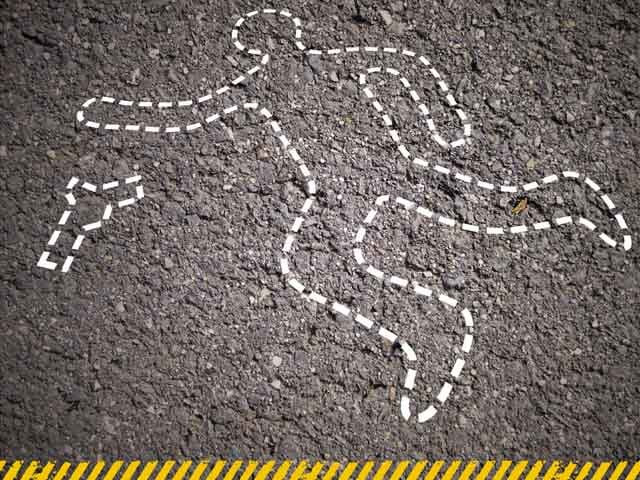Target killings: How not to solve the issue
Terrorism by religious-sectarian partisans, Al Qaeda has given rise to a copycat trend among the politically-linked.

If one were to carefully analyse what the minister has said, it seems that he considers much of what the people of Karachi perceive to be organised target killings as ordinary crimes perpetrated by various vested interests, and that political parties are being given a bad name by these mafias. Taking this ‘logic’ one step further, this would mean that the three coalition partners, whose leaders (barring the interior minister of course) from time to time have accused one another publicly of the violence, are to be exonerated of any blame. And this is precisely the opposite of what needs to be done if the country’s largest city and business and commercial centre is to rid itself of this dreaded affliction. Political parties need to own up to the violence that their animosity for each other is generating and they need to weed out the black sheep among their ranks and pledge to live in peace and in an atmosphere of compromise.
The police have usually shielded itself against official retaliation by giving vague explanations and hiding behind the fact that it is highly politicised and used by the political parties for their own ends. However, the current head of the city police should be applauded for having the courage to say that some of the alleged target killers arrested by his force, after interrogation by a joint investigation team, comprising police and intelligence agencies, turned out to be affiliated with political parties. In light of what the media has been reporting in recent days from the confessions of the arrested suspects, what the interior minister is saying does not sound very credible. The minister might have said what he said to patch up ties between his party and an ally in Sindh but his statement will lower the morale of the police because it directly undermines what a senior police officer was brave enough to admit in public.
Terrorism by religious-sectarian partisans and al Qaeda in Karachi has given rise to a copycat trend among the politically-linked communities. Starting in the 1990s, the embedding of al Qaeda in Karachi and the linkages it formed with jihadi militias saw the retreat of state authority in the face of religious crime, much inspired by the earlier practice of the violent extraction of bhatta by non-religious party activists. This means that today, the target killing also involves sectarian parties and groups.
The ANP has to deal with the issue of defending not only those who are its members or sympathisers but also those who are Pashtun but may not owe their allegiance to it. This can be explained by the fact that a party such as the ANP, because of its secular ideology, may want to support all Pashtuns regardless of their political affiliations, in an effort to wean them away from supporting militant groups active in Karachi.
The MQM claims that its members are killed in larger numbers than those of the other two parties. In this case, too, it could be an effort on the part of the MQM to claim leadership of the entire ethnic group and give it protection with an eye on future elections. In the process, it is the criminal mafias of the city, growing on the basis of bhatta and grabbing of property, who benefit through the shifting of blame. And the ordinary resident suffers the most in all this, because he has little choice but to fend for himself.
Published in The Express Tribune, April 17th, 2011.















COMMENTS
Comments are moderated and generally will be posted if they are on-topic and not abusive.
For more information, please see our Comments FAQ